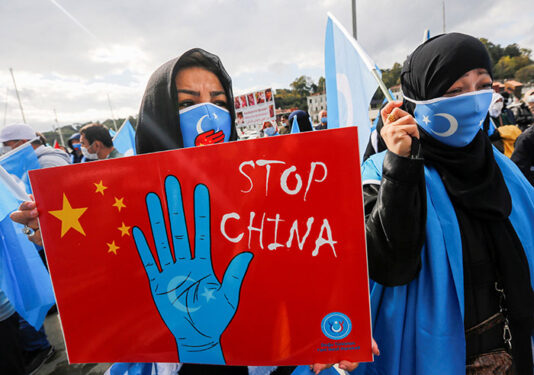Anti-Christian oppression seminar in Rome discusses suffering under Xi Jinping
ROME (Crux) — Although the world knows that the Dalai Lama lives in exile and is the face of Chinese repression in Tibet, and the media has shone a light on the persecution suffered by the Uyghurs in the Muslim region of Xinjiang, the “relentless, albeit silent, control” Christians suffer in China also deserves attention, according to experts speaking in Rome.

Spanish journalist Pablo M. Diez, who for the past two decades has been covering China for the Spanish newspaper ABC, said, the “tragic history of persecution suffered by Catholics” in recent years has its origins in the victory of the communist revolutionary Mao Zedong, who founded the People’s Republic of China on October 1, 1949. He noted that two years later, the communist state expelled the papal nuncio to the country, who went to Taiwan, the seat of the expelled, non-communist nationalist government.
Diez spoke at an April 26 seminar on anti-Christian persecution organized by the International Trinitarian Solidarity, which works on behalf of those who, because of their faith in Christ, are reduced to slavery, oppression, exclusion, or persecution.
He said the Vatican has been trying to rebuild diplomatic relations with China, with the knowledge that if accomplished, it would have to sever its diplomatic ties with Taiwan. In the past decades, Diez pointed out, the People’s Republic of China has been working on rebuilding diplomatic relations with several countries to gain credibility and also to further isolate Taiwan, which China considers a renegade province.
Today, with China becoming more and more powerful, both militarily and economically, the Vatican is one of 14 countries that continues to recognize Taiwan as a sovereign country.
“But all that may change if, finally, the Holy See establishes diplomatic ties with the Beijing regime, which imposes for this the condition of accepting ‘one China,’ ” Diez said.
A slight “thaw” was accomplished with the agreement reached in September 2018 between the Vatican and China on the appointment of bishops. It was renewed in 2020 and is set for another renewal later this year.
Diez argued that China wants to renew the agreement because it furthers the credibility the country has with the Western world: Not only is it capable of forging ties with nations that want to do business, but also with the moral power of the Catholic Church.
He said the relationship is not without “controversy.” Many within the Vatican reject the diplomatic recognition of China, arguing that it would give legitimacy to a dictatorship that routinely violates human rights.
However, the agreement did little to tone down the growing harassment of Christians under President Xi Jinping, whom Diez called “the most authoritarian leader since Mao Zedong.”
He said evidence of this are cases such as that of the “imprisoned and tortured martyr bishops José Fan Zhonglian and Cosme Shi Enxiang, who spent 14 years under house arrest until their death,” and that of Jaime Su, “disappeared since 2003 and of whom it is not known whether he is alive or dead.” If he were still alive, “he would be about to turn 90 years old and would have spent most of his life deprived of his freedom.”
According to Diez, it is not only the Catholic bishops who pay the ultimate price for being Christians: “One of the latest victims of the Chinese dictatorship” was activist Li Qiaochu, accused at the end of February of “inciting subversion against the State,” a crime that, Diez said, is “commonly used to remove dissidents from circulation.”
In his remarks during the conference, Diez also referred to the “massive campaign against churches in the industrialized coastal province of Zhejiang,” with some 1,800 crosses being removed and dozens of places of worship demolished.
When they are not demolished, places of worship are placed under surveillance by the government, “with numerous cameras surrounding the churches,” sometimes blatantly, as in the case of a church Diez knows in Shanghai, with as many as a dozen cameras pointed directly at its door.
“The goal seems clear: not only to record anyone who dares to enter but also to deter anyone who wants to do so,” Diez said. Similarly, in November 2017, the provincial government of Jiangxi “forced the Catholics in the rural county of Yugan to change the pictures of Christ they had in their homes for portraits of President Xi Jinping.”
Asked if he favors the agreement between China and the Holy See, Diez said that he is “no one” to give advice to the pope.
“As we well know, the ways of the Lord are inscrutable,” Diez said. “Even more so in China.”
